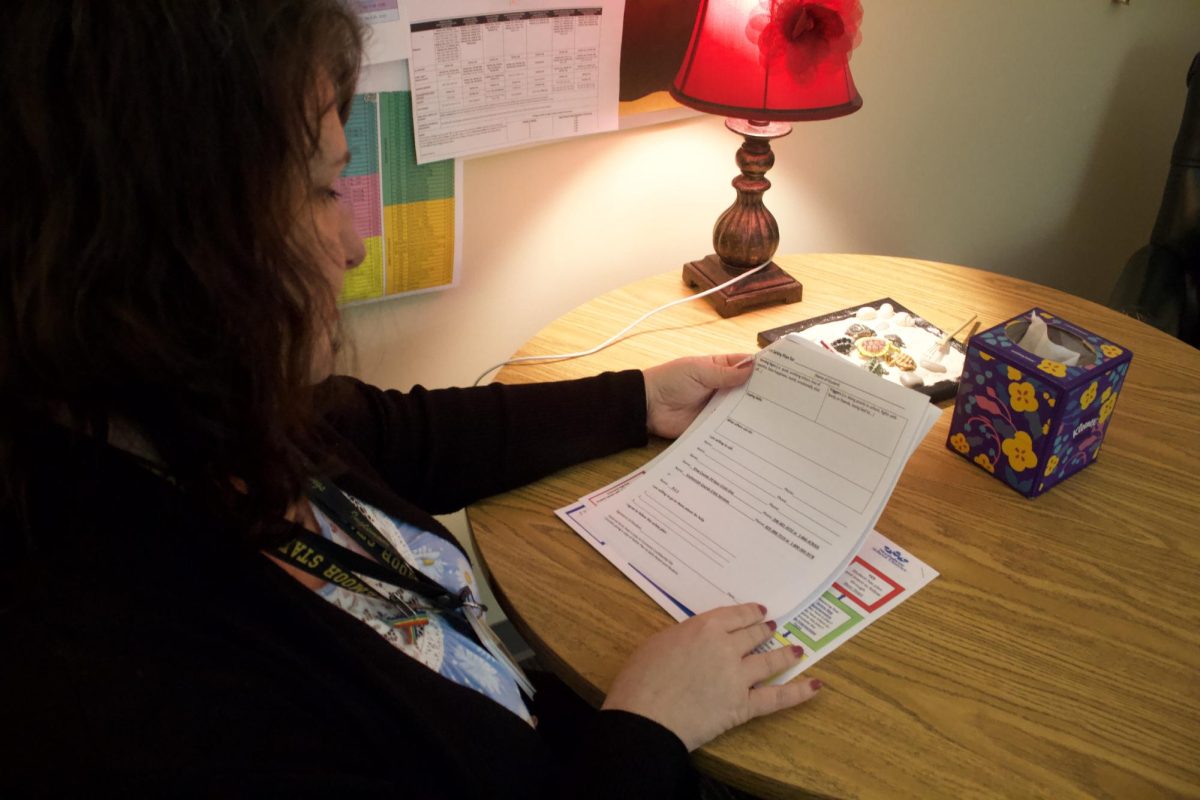In 2023, a study conducted by the National Institute of Health showed that 44% of high school students in the U.S. reported consistently feeling sad or anxious, an increase of 7% compared to before the coronavirus pandemic. As these numbers increase, so do the numbers of students visiting their counselor. Aside from assisting students with schedules and prepping them for college, counselors offer various resources to help students struggling with mental health.
“In my case, I went to [the counselor] because I started slipping up, and I started skipping classes,” senior Serena Gustafson (they/them) said. “So I went to my counselor for support. And I asked, ‘How do I motivate myself to get back to class?’ In some ways, she gave me more practical advice, but she also helped me focus on how to raise my emotions, and how to talk things through and get back to class.”
The Washington Office of Superintendent of Public Instruction states that people seeking first tier certification to be a school counselor must complete an approved program or three years of out of state experience in addition to completing one of the five national counselor examinations. Counselors are taught to connect with students who might be struggling by reaching out when students have attendance issues or slipping grades, or when a friend or teacher recommends counselors check in with them. Still, many students take the initiative to come in on their own, seeing counselors as a resource when they don’t know where else to turn.
“I’m somebody who feels really bad when I have to bend to my friends, or if I have to put any kind of emotional stuff on them,” Gustafson said. “So the counselor was my only hope about that. I don’t have a therapist either.”
In a survey of 102 Inglemoor students, 71% said they have had an appointment with their counselor before, and 21% said it was for emotional support. Counselors can support students in most topics while maintaining confidentiality, providing a space where students can share without worrying that their friends or families might hear about it.
“The counselors have confidentiality to a point, so I could literally tell them anything,” junior Tristany Jones (she/her) said. “Not necessarily my school counselor, I talked to a mental health counselor that works here at school. I can tell her like literally anything as long as it doesn’t consist of like violence or wanting to kill myself.”
While counselors are legally required to keep most information students share confidential, they are also mandatory reporters, so they do have to break confidentiality if a student shares something potentially harmful to themselves or others. The US Department of Health and Human Services categorizes abuse into four main categories: neglect, physical abuse, psychological abuse, and sexual abuse. Counselors would assess the risks of the situation and, if necessary, report any suspected abuse or neglect to the correlating authorities and the Washington State Department of Social and Health Services. This action was made necessary by the Child Abuse Prevention and Treatment Act of 1974.
“I think this can be hard as a counselor, because one of the major roles of our job is to create and maintain relationships with students,” said counselor Jennifer Orhuozee (she/her). “So breaking that confidentiality is never fun. It’s probably the least favorite part of all of our jobs. But also we have to realize that there are specific state and federal mandates, and we need to follow those.”
The counselors’ status as a mandatory reporter is intended to protect students, but it could also limit students from sharing, worrying they could be reported when talking about their difficulties. After the proper authorities are contacted, students might have to be evaluated by a medical professional or referred to an outside therapist, which could be more intense than talking to a school counselor. Still, school counselors play a critical role in identifying mistreatment early on and providing resources for support.
“To a certain extent, I understand when they have to report, but I feel like if this student is confident enough to pass this to you and be okay with telling you things, then the student should have to sign a contract or something for them to have permission to tell someone else,” Jones said. “There’s not always stuff that I want to be shared with other people, you know, so there’s reasons I don’t go to them.”
Although the mandatory reporter status may make it difficult for students to share, it could provide them with outside help that they might not have had access to before, offering them vital support during difficult times.
“Most kids I’ve learned nowadays — those who have self harm or suicidal thoughts — they usually don’t know what to do with a lot of times,” Gustafson said. “Speaking from experience, usually those thoughts get jumbled up with a lot of other things going on with your mind. But if you do end up telling that to your counselor, I do feel like it is right for them to report it to somebody so that you can get the steps to help that you might not be able to find just on your own.”
There are a variety of mental health support services for Washington teens. Below are organizations dedicated to addressing the various challenges young individuals may face.
Teen Link: a helpline for teens, by teens
866-833-6546
CALLS 6-10PM
TEXT 6-9:30PM
SUBSTANCE USE CLINICIANS
866-833-6546 | PRESS 2
CALLS 3-6PM
King County 24 Hour Crisis Line
206-462-3222
Snohomish County Crisis Services
425-388-7215
988: Lifeline Chat and Text
DIAL 988 for support
ASL Now: support for the deaf and hard of hearing
https://988.aslnow.io/phones/100030001/
Search Washington State Department of Health for other hotlines, text, and chat resources.











